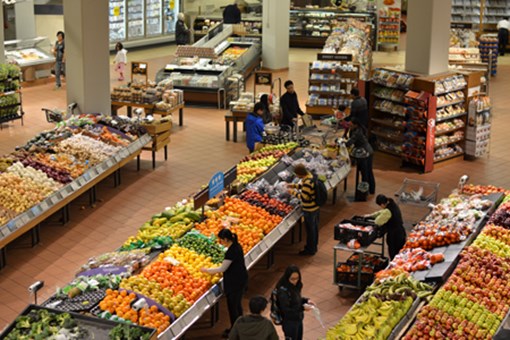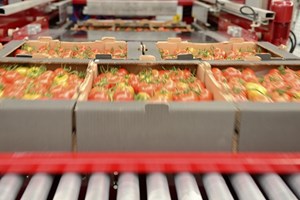 What Does “Food Safety” Mean In The Eyes Of The Consumer?
What Does “Food Safety” Mean In The Eyes Of The Consumer?
As consumers become increasingly attentive and evermore informed regarding what they eat, so do their ideas of what food safety should mean for food manufacturers. Here, William Thomas, CEO of Thomas Utopia Brand, answers my questions concerning what food safety means for food manufacturers in the age of the ultra-informed consumer.
FOOD TRACEABILITY CASE STUDIES
-
Washington Fruit & Produce Enhances Food Traceability With Key Distribution Center Upgrades
For Washington Fruit & Produce, Co., one of Washington state’s largest shippers of apples, maintaining the most effective technology possible for distribution center (DC) operations is a constant requirement.
-
How DSC Helped The Musco Family Olive Company Improve Service To Wal-Mart And Reduce Costs Through Consolidation
Sometimes the fruit has to travel far from the tree…and when you care about your product as much as the Musco Family Olive Co. does, you care about the way it’s handled along the way.
-
How DSC Helped Continental Mills Adopt New RFID Technology
When you’re doing something for the first time, it’s usually a good idea to learn as much as you can. That way, you’ll be better prepared for the next time.
FOOD TRACEABILITY WHITE PAPERS & ARTICLES
-
FSMA's Final Sanitary Transportation Rule Provides Greater Flexibility
With the publication of the Sanitary Transportation of Human and Animal Food rule, the food industry now has six of the seven foundational rules that establish a modern, risk-based framework for food safety. When compared with the original proposed rule, this final rule is flexible and takes into account the transportation industry’s existing best practices that prevent food safety risks. Taking into account comments from approximately 240 submissions from individuals, some of the major revisions address efforts to protect food from contamination during transportation.
-
5 Eye-Opening Facts About Recordkeeping Under FSMA
Although food companies have lots of experience creating records, these records have never been subject to the type of scrutiny they soon will face by the Food FDA under FSMA. The FDA will not only assess whether companies adopt programs that are adequate, but also will inspect whether these programs are consistently implemented.
-
How Is FSMA Impacting Food Manufacturing?
The Food Safety Modernization Act (FSMA), signed into law in 2011 but not yet fully implemented via regulations, represents the most comprehensive change to food safety regulation since the 1930s.
-
Food Traceability: Solving The Imperative Of Compliance
Consumers’ confidence in the food they consume is eroding. The numbers quickly illustrate why: in the last few years FDA food recalls increased nearly 400%, largely due to salmonella and undeclared allergens1. Ghastly stories such as contaminated foods causing deaths across several states further diminish consumers’ confidence in food—and in the retailers where they purchased the recalled produce.
-
Food Safety Modernization Act and e-Pedigree With Intelleflex' Temperature Monitor
The Food Safety Modernization Act (signed by President Obama in January 2011), and the e-Pedigree law, set to take effect in January 2015 should drive demand for Intelleflex’ solutions, and asset tracking technologies in general
-
Article: How I Survived A Product Recall! No food service company large or small is immune from the dangers of a product recall. Just ask Al Feucht, owner of Brandon Meats and Sausage, Inc., a meat processor with 25 employees located in Brandon, Wisconsin, 90 miles south of Green Bay. On May 21, 2001, Feucht, who has worked in the retail and wholesale slaughtering meat business for over 20 years, found his life a stress-ridden nightmare after state meat inspectors informed him of a Listeria contamination. Suddenly, the company he had owned since 1985 and which processed more than nine tons of meat each week for local customers, was teetering. By Cole Parmer
FOOD TRACEABILITY NEWS
-
DeltaTRAK Announces New ColdTRAK ThermoTrace TTI Cold Chain Solution Technology To Be Showcased At United Fresh Show4/12/2012DeltaTRAK, a leading innovator of cold chain management solutions recently announced it plans to announce and showcase its newest ColdTRAK TTI cold chain solution technology at the United Fresh 2012 show (booth#10816), in Dallas Texas May 1st through 3rd.




